Being an Nix admin over 5+ years, I always be responsible for the security management of Linux servers. Firewalls plays an important role in securing Linux systems/networks. It acts like an security guard between internal and external network by controlling and managing incoming and outgoing network traffic based on set of rules. These set of firewall rules only allows legitimate connections and blocks those which are not defined.

There are dozens of open source firewall application available for download in the market. Here in this article, we’ve come up with 10 most popular open source firewalls that might be very useful in selecting one that suits your requirements.
1. Iptables
Iptables/Netfilter is the most popular command line based firewall. It is the first line of defence of a Linux server security. Many system administrators use it for fine-tuning of their servers. It filters the packets in the network stack within the kernel itself. You can find a more detailed overview of Iptables here.
Features of IPtables
- It lists the contents of the packet filter ruleset.
- It’s lightning fast because it inspects only the packet headers.
- You can Add/Remove/Modify rules according to your needs in the packet filter rulesets.
- Listing/zeroing per-rule counters of the packet filter rulesets.
- Supports Backup and restoration with files.
IPtables Homepage
Basic Guide to Linux IPTables Firewall
2. IPCop Firewall
IPCop is an Open Source Linux firewall distribution, IPCop team is continuously working to provide a stable, more secure, user friendly and highly configurable Firewall management system to their users. IPCop provides a well designed web interface to manage the firewall. It’s very useful and good for Small businesses and Local PCs.
You can configure an Old PC as a secure VPN to provide a secure environment over the internet. It’s also keeps some frequently used information to provide better web browsing experience to its users.
Features of IPCop Firewall
- Its Color coded Web Interface allows you to Monitor the performance Graphics for CPU, Memory and Disk as well as Network throughput.
- It views and auto rotate logs.
- Support Multiple language support.
- Provides very secure stable and easily implementable upgrade and add on patches.
3. Shorewall
Shorewall or Shoreline Firewall is another very popular Open source firewall specialized for GNU/Linux. It is build upon the Netfilter system built into the Linux kernel that also supports IPV6.
Feature of Shorewall
- Uses Netfilter’s connection tracking facilities for stateful packet filtering.
- Supports a wide range of routers/firewall/gateway applications.
- Centralized firewall Administration.
- A GUI interface with Webmin control Panel.
- Multiple ISP support.
- Supports Masquerading and port forwarding.
- Supports VPN
Shorewall Homepage
Shorewall Installation
4. UFW – Uncomplicated Firewall
UFW is the default firewall tool for Ubuntu servers, it is basically designed to lesser the complexity of the iptables firewall and makes it more user friendly. A Graphical user interface of ufw, GUFW is also available for Ubuntu and Debian users.
Features of UFW
- Supports IPV6
- Extended Logging options with On/Off facility
- Status Monitoring
- Extensible Framework
- Can be Integrated with Applications
- Add/Remove/Modify Rules according to your needs.
UFW Homepage
GUFW Homepage
UFW Installation
5. Vuurmuur
Vuurmuur is another powerful Linux firewall manager built or manage iptables rules for your server or network. At the same time its very user friendly to administrate, no prior iptables working knowledge required to use Vuurmuur.
Features of Vuurmuur
- Support IPV6
- Traffic shaping
- More advanced Monitoring features
- Real time monitoring connection and bandwidth usage
- Can be easily configured with NAT.
- Have Anti-spoofing features.
Vuurmuur Homepage
Vuurmuur Flash Demos
6. pfSense
pfSense is another Open Source and a very reliable firewall for FreeBSD servers. Its based on the concept of Stateful Packet filtering. It offers wide ranges of feature which is normally available on expensive commercial firewalls only.
Features of pfsense
- Highly configurable and upgraded from its Web – based interface.
- Can be deployed as a perimeter firewall, router, DHCP & DNS server.
- Configured as wireless access point and a VPN endpoint.
- Traffic shaping and Real Time information about the server.
- Inbound and Outbound load balancing.
7. IPFire
IPFire is another open source Linux based firewalls for Small Office , Home Office (SOHO) environments. Its designed with modularity and highly flexibility. IPfire community also took care of Security and developed it as a Stateful Packet Inspection(SPI) firewall.
Features of IPFire
- Can be deployed as a firewall, a proxy server or a VPN gateway.
- Content filtering
- Inbuilt Intrusion detection system
- Supports through Wiki, forums and Chats
- Support hypervisors like KVM, VmWare and Xen for Virtualization environment.
8. SmoothWall & SmoothWall Express
SmoothWall is an Open Source Linux firewall with a highly configurable Web based interface. Its Web based interface is know as WAM (Web Access manager). A freely distributable version of SmoothWall is know as SmoothWall Express.
Features of SmoothWall
- Supports LAN, DMZ, and Wireless networks, plus External.
- Real Time content filtering
- HTTPS filtering
- Support proxies
- Log viewing and firewall activity monitor
- Traffic stats management on per IP, interface and visit basis
- Backup and restoration facility like.
9. Endian
Endian firewall is another Stateful packet Inspection concept based firewall which can be deployed as routers, proxy and Gateway VPN with OpenVPN. Its originally developed from IPCop firewall which is also a fork of Smoothwall.
Features of Endian
- Bidirectional firewall
- Snort Intrusion prevention
- Can secure web server with HTTP &FTP proxies, antivirus and URL blacklist.
- Can secure Mail servers with SMTP and POP3 proxies, Spam Auto-learning, Greylisting.
- VPN with IPSec
- Real time Network traffic logging
10. ConfigServer Security Firewall
Last, But not the last Configserver security & firewall. It’s a cross platform and a very versatile Firewall, it’s also based on the concept of Stateful packet inspection (SPI) Firewall. It supports almost all Virtualization environments like Virtuozzo, OpenVZ, VMware, XEN, KVM and Virtualbox.
Features of CSF
- Its daemon process LFD( Login failure daemon) checks for login failures of sensitive servers like ssh, SMTP, Exim, Imap,Pure & ProFTP, vsftpd, Suhosin and mod_security failures.
- Can configure email alerts to notify if something goes unusual or detect any kind of intrusion on your server.
- Can be easily integrated popular web hosting control panels like cPanel, DirectAdmin and Webmin.
- Notifies excessive resource user and suspicious process via email alerts.
- Advanced Intrusion detection system.
- Can protect your linux box with the attacks like Syn flood and ping of death.
- Checks for exploits
- Easy to start/restart/stop & lots more
Other than these Firewalls there are many other firewalls like Sphirewall, Checkpoint, ClearOS, Monowall available in the web to secure your Linux box. Please let the world know which is your favourite firewall for your Nix box and leave your valuable suggestions and queries below in the comment box. I’ll come with another interesting article soon, till then stay healthy and connected with Tecmint.com.

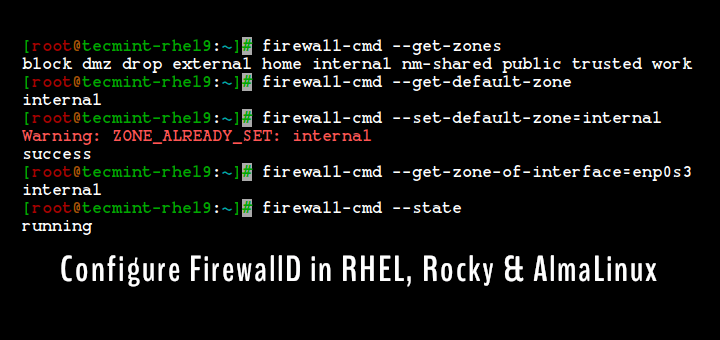
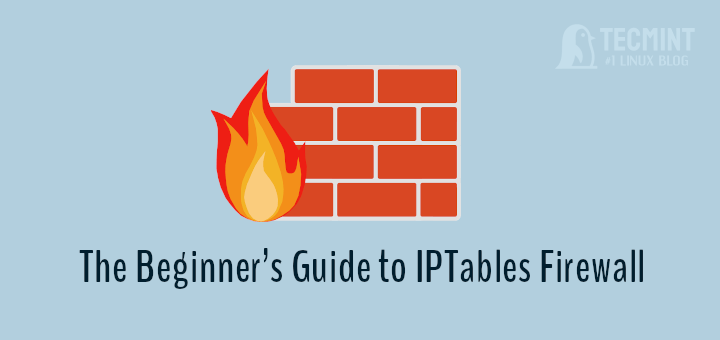
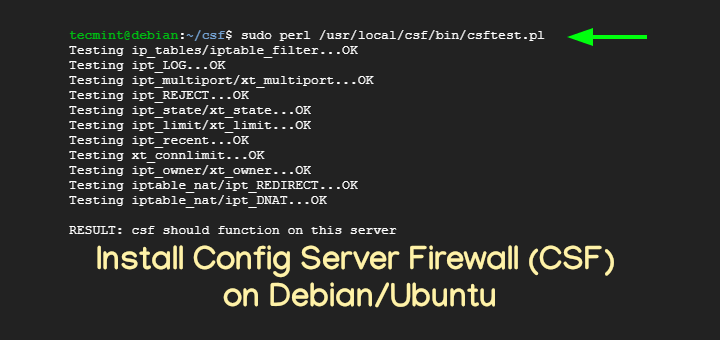
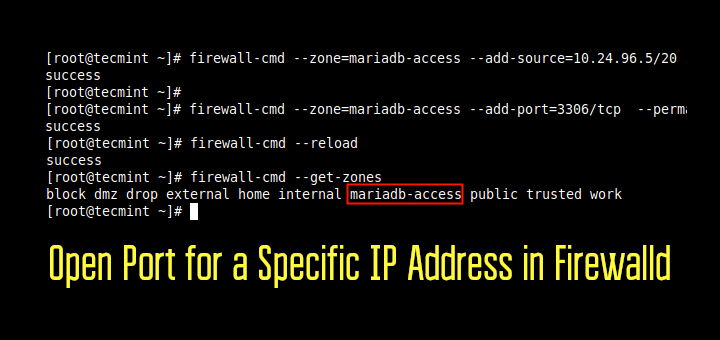
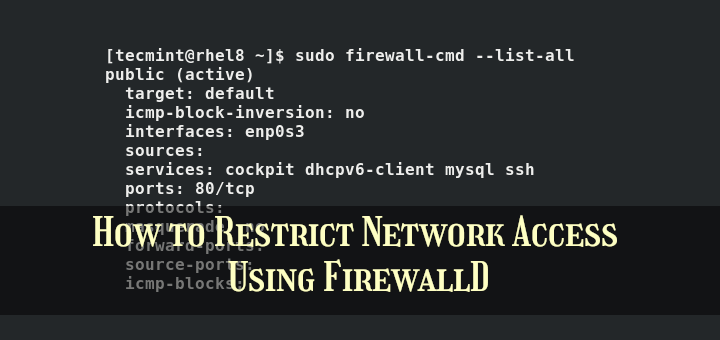
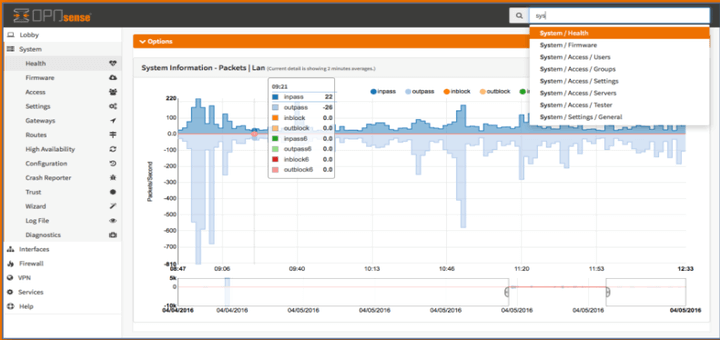
Which firewall are useful for Ubuntu.
Which of them can select, filter, access, deny traffic for processor program name as in windows I so confusing for IP address. Please help if you can, I was using zone alarm or Tini wall in windows is so easy. Why there is not some similar in Linux?
I speak Spanish sorry for my English.
Thanks
Hi,
Great article, thanks for posting. It might also be worth checking out Linewize, we’ve built an open source cloud managed layer 7 firewall which is free to use.
We provide complete visibility over internet use on a per user, device and application basis through our subscription services, all the firewall and filtering goodness is free for anyone to use.
If you’re keen to have a look the install instructions are here linewize.com/install. Keen to know what you think.
Cheers Scott.
There is only one firewall for Linux: iptables, other one in your list is either a frontends for it or some specific Linux-distros or even FreeBSD-based distro. One of the list is WUI for iptables which is distributed in a tarball with sources of files, because all of them are scripts. And a proprietary license. It’s hard to imagine how could one “decompile or disassemble, or reverse engineer” a text file!
There is only one firewall for Linux: Netfilter, other one is either a frontends for it or iptables.
Pretty sure FirewallD is not iptables … ?